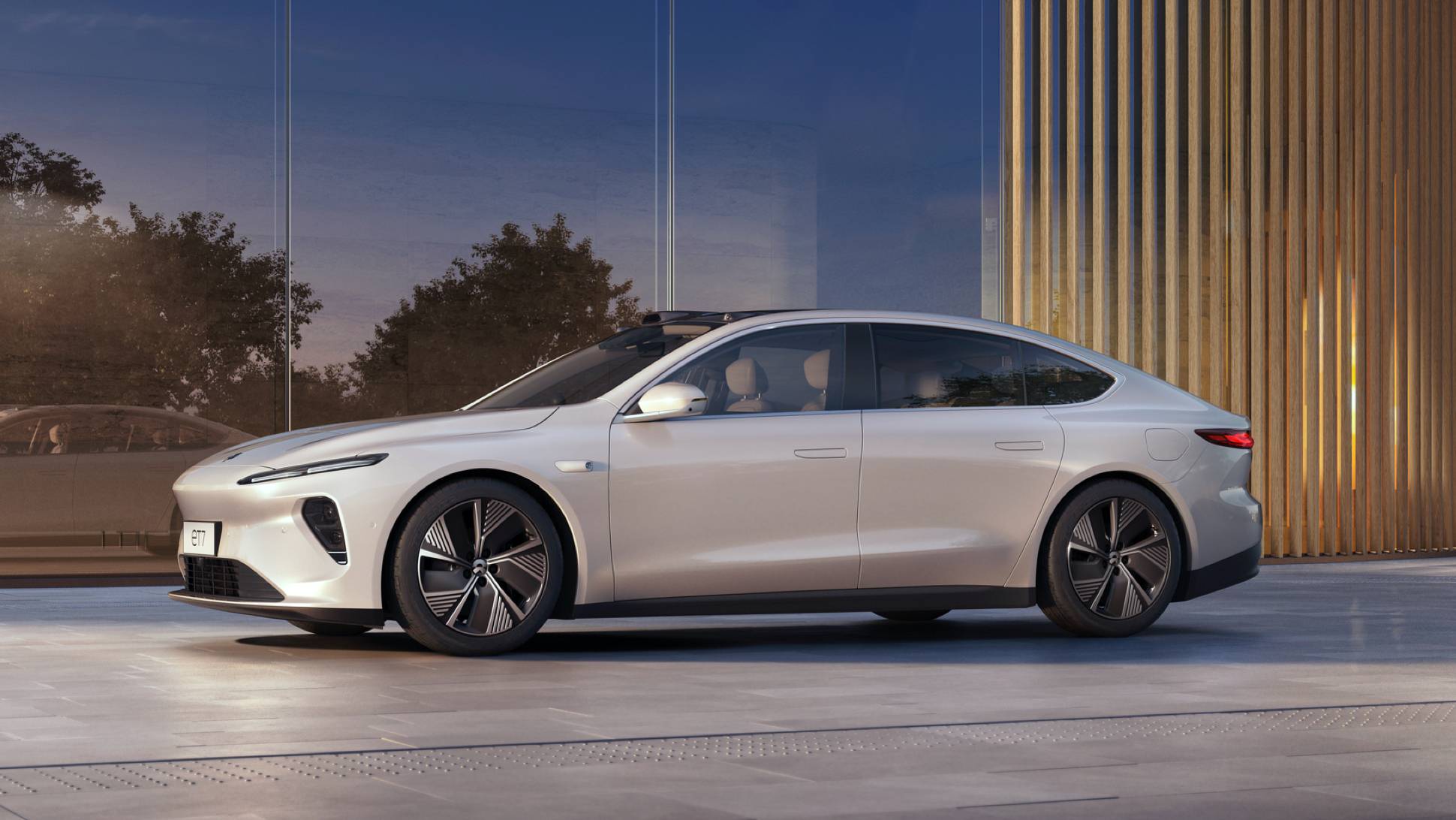

Nio unveiled its new flagship ET7 sedan last weekend that could become the new longest-range electric vehicle in production. Nio is one of several Chinese-market companies hoping to take on the likes of Tesla and other more established marques, and the ET7 is clearly their most ambitious vehicle yet, promising a swappable battery, high-level autonomous features and over 600 horsepower.
It wouldn’t be a Tesla Model S-baiting sedan without decent performance stats, which the Nio ET7 gets from a 180-kW permanent magnet motor up front and a 300-kW induction motor in the rear. Nio says it has a drag coefficient of just 0.23 Cd. The end result is 644 hp and 627 pound-feet of torque, plus a 0-to-62 mph time of 3.9 seconds.

Its real winning stats are its range figures, though. Nio only cites figures using the more forgiving NEDC test, so expect these figures to be a tad optimistic, but they’re still pretty notable. You can choose from a 70 kWh battery good for over 311 miles of range, a 100 kWh battery good for over 435 miles, or the new solid-state 150 kWh battery capable of over 621 miles or range. The 150 kWh battery is still in development, according to Car and Driver, but is expected to go on sale in 2022. Owners can upgrade to the 150 kWh battery later if desired.
Speaking of swapping, Nio offers a battery-as-a-service program that will swap out a drained battery for a fresh fully-charged one at select stations or, when farther out, through a battery delivery guy. If you subscribe to this service, the price of the car becomes separate from the price of the battery, meaning that the base price of the car itself becomes about $58,000 with the extra $150 per month subscription fee on top for endless swap-outs of the 70 kWh battery, per Car and Driver. Nio plans to have 500 of its Power Swap stations operational across China by the end of 2021.

Nio is also hyping up its Nio Autonomous Driving (yes, that’s really NAD for short) tech, which promises high-level autonomy, although the specific level was not specified in Nio’s release. The systems on the road today, including Cadillac Super Cruise and Tesla Autopilot are all Level 2, meaning that the car can regulate its own speed and even take over other functions like steering, but a driver must be prepated at all times to take over in hazardous or confusing situations. (Shout-out to West Sixth Street, a road I can’t even figure out with human eyeballs.) Nio claims their system can go from point-to-point including parking and battery swapping, be it through freeways or city streets, but again: that’s a big promise for where we are right now and we suspect you’ll still need to pay attention.
We’ll have to see how well Nio’s system works in practice, but the tech behind it sounds impressive. The Nio Aquila Super Sensing system utilizes 33 sensors, including 12 ultrasonic sensors, 11 eight-megapixel cameras, five millimeter-wave radars, two high-precision positioning units and what Nio describes as an “ultralong-range” high-resolution LIDAR system. The system generates 8 GB of data per second. It also features V2X (vehicle-to-everything) tech that can communicate with connected devices, other vehicles and infrastructure outside the car.

Inside, Nio describes the ET7 as a “second living room,” with standard massage seats, soft-close frameless doors, a 12.8-inch AMOLED center display, a standard 1,000-watt 23-speaker sound system and Nio’s funky Alexa-but-cute NOMI in-car AI system. It features standard “smart” air suspension and continuous damping control, which sounds a lot like Rolls-Royce’s Flagbearer system, as the ET7 uses high-definition maps and high-resolution sensors to detect road conditions ahead and adjust the suspension accordingly for maximum comfort. Nio says they used a combination of aluminum and high-strength steel in the ET7’s body for extra rigidity and crashworthiness.
The first ET7s will be delivered in China in 2022 with a starting price of 448,000 yuan for the 70 kWh model, or roughly $69,000 U.S., and 506,000 yuan (about $78,000 U.S.) for the 100 kWh model. The upcoming Premier Edition with that 100-kWh battery starts at 526,000 yuan (about $81,000 U.S.). The 150-kWh price is yet to be announced.



Got a tip? Send us a note: tips@thedrive.com